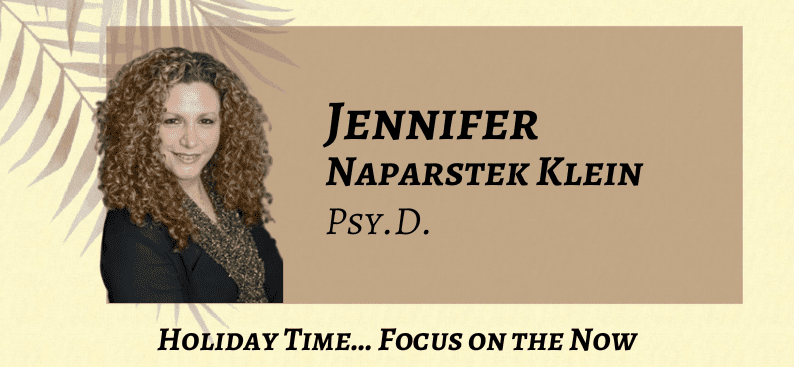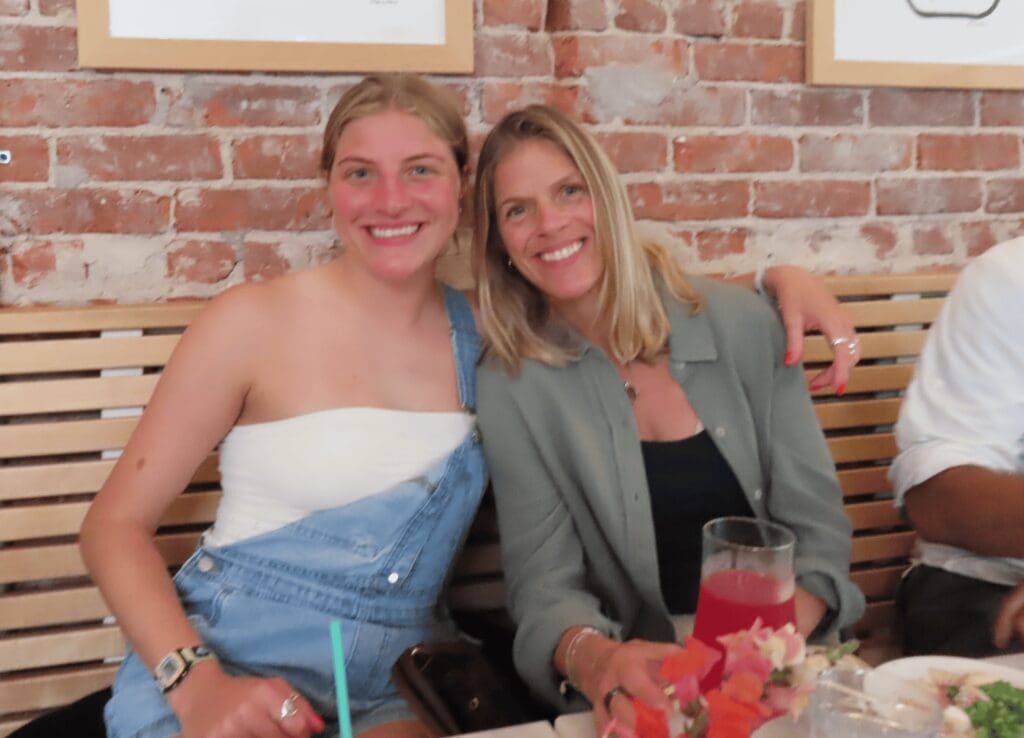
“Ted Lasso, the cable TV philosopher/coach, has a poignant and well-known line, “Living in the moment is a gift. That’s why they call it the present.”
Of course, Eleanor Roosevelt originated the sentiment, “Yesterday is history. Tomorrow is a mystery. Today is a gift. That’s why we call it the present.”
At holiday time, as we think about WHAT matters, and WHO matters to us, contemplating a focus on mindfulness…the NOW… feels important. Holiday season is often joyful, but also can be emotionally fraught. It can trigger a longing for the past, or conversely, a bitterness or resentment about the past. It can trigger the missing of people who are no longer present, or the wishing our current relationships were stronger or more sustaining. Sometimes disappointing “presents” serve as proof to us that something is lacking! Holidays are a marking of the passage of time, which can make us hopeful for the future, or conversely, fearful. We often pressure ourselves to do more or be better in the upcoming year, rarely pushing ourselves to digest our contentment with today.
A “present” we can give to ourselves this season is to recognize the beauty of the present. This moment. With these people. In this place. The idea that we are here. Together.
I’ll leave the reader with lyrics from the musical, Rent, whose brilliant composer, Jonathan Larson, died just upon its arrival to Broadway—another symbolic press to focus on the now…
There is no future,
There is no past
Thank God this moment’s not the last. There’s only now
There’s only here
There’s only us Give in to love
There’s only this Or live in fear
Forget regret— or life is yours to miss. No other path
No other road No other way
No other way
No day but today… No day but today.


